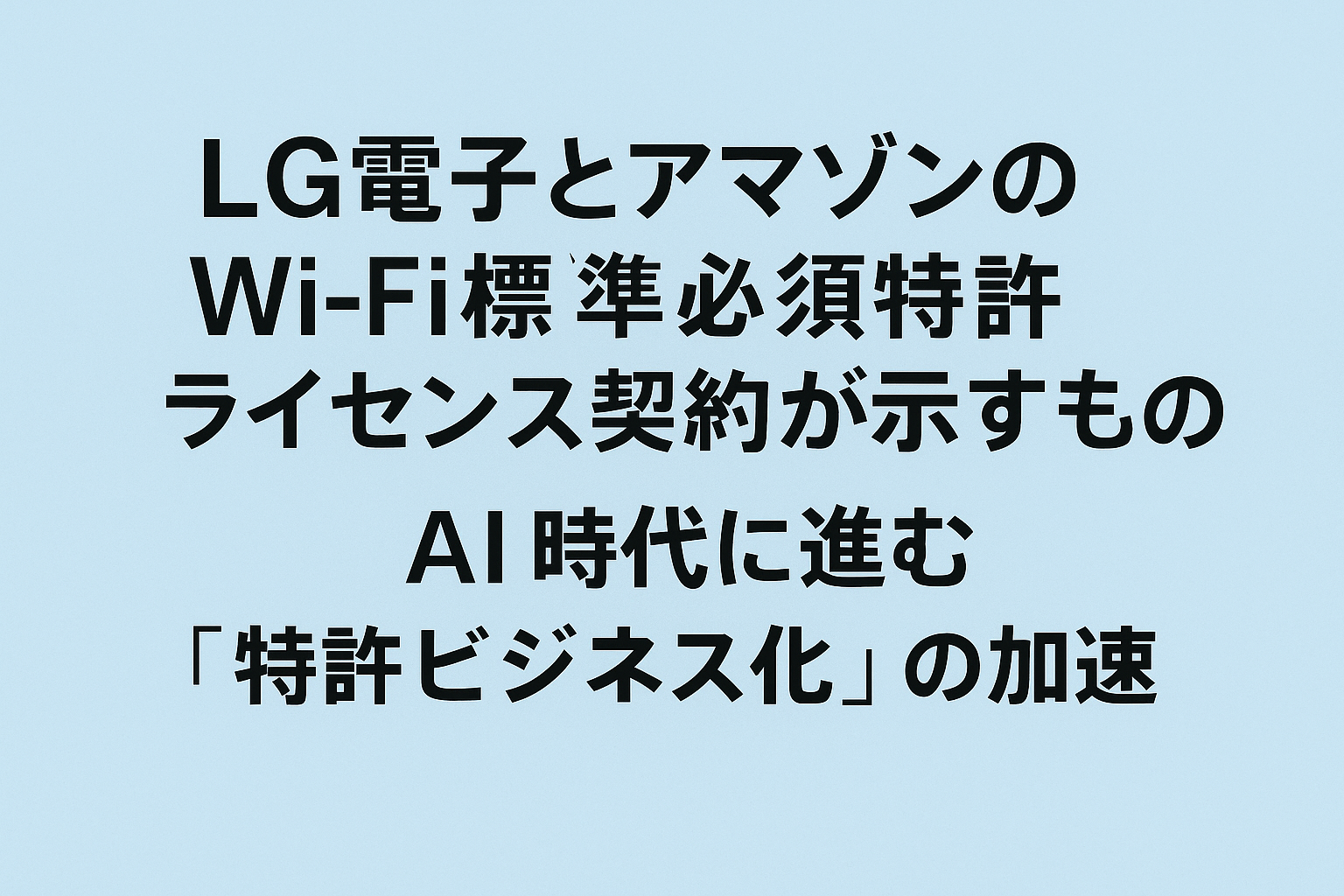News has emerged that LG Electronics of South Korea has signed a license agreement with Amazon.com for Standard Essential Patents (SEPs) related to Wi-Fi technology.
At first glance, this may seem like just another patent licensing story, but in an era where AI and IoT are deeply embedded in our daily lives, this move carries significant implications.
LG Electronics Is Shifting from “Manufacturer” to “IP-Driven Revenue Company”
In 2022, LG Electronics amended its corporate bylaws to add “licensing of patents and other intellectual property rights,” signaling a clear commitment to monetizing its intellectual property.
As of the first half of 2025, the company owns 97,880 registered patents worldwide, with roughly half classified as standard patents—an unusually large portfolio.
Standard Essential Patents (SEPs) are indispensable patents for implementing global standards such as communication protocols. Because they impact whole markets and tend to generate stable royalty income, they represent a highly strategic asset.
A company holding such a vast number of SEPs and actively pursuing revenue through enforcement could fundamentally reshape its business model.
A Foreshadowing of the “AI × IoT” Era: The Significance of the Amazon Deal
The license agreement allows Amazon to use LG’s Wi-Fi technology in devices such as AI speakers.
Wi-Fi is essential for IoT devices and is deeply tied to AI speakers, smart appliances, home security systems, and countless other fields.
In other words, this agreement hints at a broader competition:
“Which companies will control the infrastructure of the AI × IoT era?”
That Amazon—a company distributing massive numbers of devices worldwide—has adopted LG’s SEPs reinforces LG’s negotiating strength and technological positioning.
Global Competition Over SEPs Will Intensify
By their nature, SEPs involve two key characteristics:
- Patent holders must offer licenses under FRAND terms (Fair, Reasonable, and Non-Discriminatory).
- Other companies’ devices inevitably use the patented technology if they comply with the standard.
Globally, disputes over SEPs related to Wi-Fi and communication technologies occur frequently.
Chinese manufacturers, U.S. Big Tech, Korean companies, and European firms all hold large portfolios and are locked in a struggle for dominance.
Against this backdrop, the fact that LG Electronics has begun negotiations with multiple global companies—starting with this Amazon deal—signals a shift toward securing leadership not through product competition, but through patent competition.
Positioning for AI: Toward a “Data-Centered” IP Strategy
Reports also indicate that LG Electronics plans to strengthen its patent competitiveness in AI and computing fields.
In the AI era, patents tend to fall into two major categories:
- Hardware and communication infrastructure SEPs (Wi-Fi, semiconductors, networks)
- IP related to AI algorithms, model development, and data processing
LG already holds a strong position in category (1), and may expand its monetization model into category (2).
Given the rapid evolution of AI, securing foundational technology IP will directly shape a company’s competitiveness over the next decade.
What This News Suggests About the Future
This license agreement suggests more than a simple patent arrangement; it points toward broader trends:
- Manufacturing companies are shifting toward prioritizing IP monetization.
- SEPs are becoming even more critical as the backbone of IoT and AI infrastructure.
- Even giant platform companies increasingly rely on technologies owned by others.
- The intersection of standardization and IP strategy is becoming a key factor in corporate competitiveness.
We are entering an era where corporate value is shaped not only by technology itself, but also by who controls which standards—a shift that this news highlights vividly.

